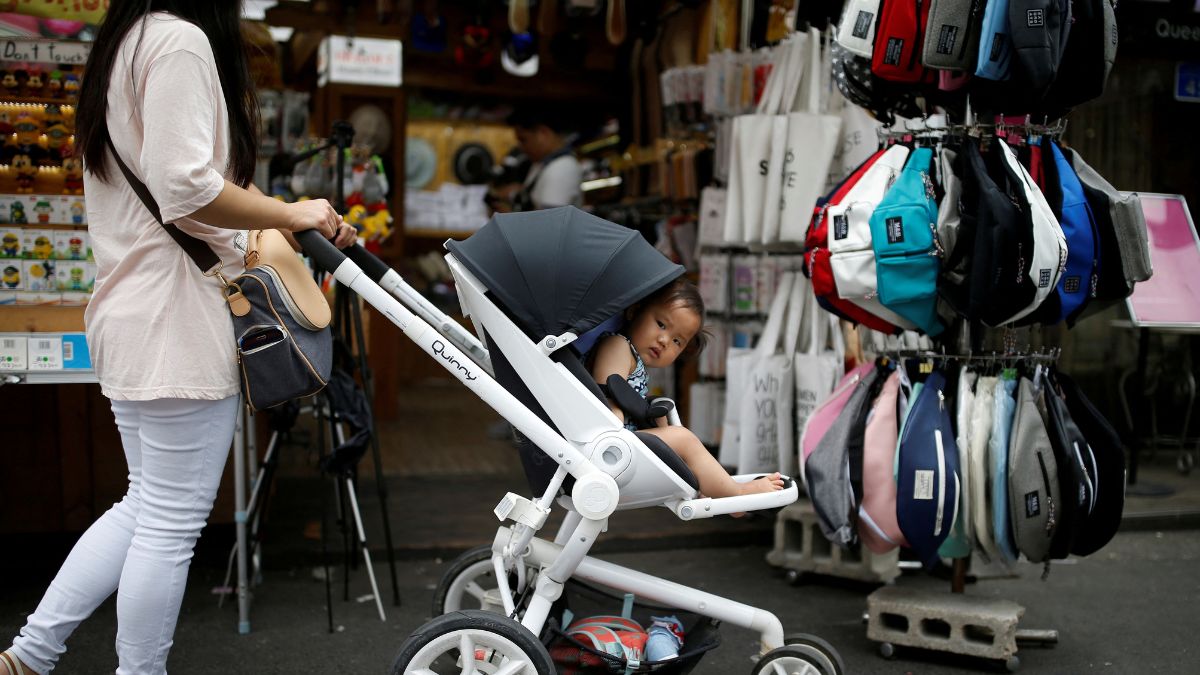South Korea, which already has the lowest fertility rate in the world, saw a further decline in births in 2023 despite the government earmarking billions of dollars for schemes to reverse the trend.
According to data published by Statistics Korea, the average number of expected babies for a South Korean woman during her reproductive life fell to a record low of 0.72 from 0.78 in 2022.
South Korea needs to maintain an average of 2.1 children to keep its current population of 51 million intact.
The country is the only Organisation for Economic Co-Operation and Development (OECD) member to have a rate below 1 since 2018.
Why aren’t South Koreans having babies?
For South Korean women, career growth trumps family planning.
Gwak Tae-hee, 34, a junior manager at a Korean dairy product maker who has been in a child-free marriage for three years, says, “Having a baby is on my list, but there’s windows for promotions and I don’t want to be passed over.”
Gwak told Reuters that she had considered having a baby via in vitro fertilisation (IVF) but was distracted by volunteering for work projects to improve her career prospects.
“I don’t know about elsewhere but working two or three days a week doesn’t get you anywhere in Korean companies. I hope it’s not too late when I try next year or the year after,” Gwak said.
Impact Shorts
More ShortsSimilarly, another working woman told BBC that she would rather focus on her career in television than have a child. She defends her decision by saying that a job in the television industry requires longer working hours, leaving her with very little time for her personal life.
In fact, South Korea is notoriously known for long working hours which in turn forces women to spend more time in the workplace than at home.
Apart from this, marriages are also declining in the country.
“There are people who don’t get married but we think about why married couples choose not to have babies, and my understanding is that addressing that part is going to be the focus of our policies (to boost the birth rate),” an official at Statistics Korea told a briefing, without elaborating.
What has the government done so far?
For South Korea 2023 was the fourth consecutive year to witness a record drop in births. An alarmed South Korean government has been pushing schemes, from showering parents with cash to free IVF treatments for married couples, to boost the fertility rate.
Since 2006, the government has spent more than $270 billion to incentivise couples to have more children.
President Yoon Suk Yeol has even declared that reversing the country’s declining birth rate is a national priority and promised that his government will come up with “extraordinary measures” to tackle the problem.
However, policymakers have often been criticised for not taking into account the problem of young people, especially women.
)